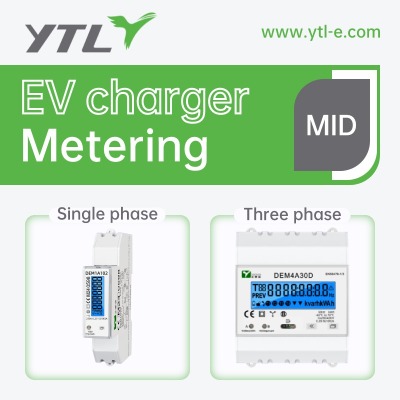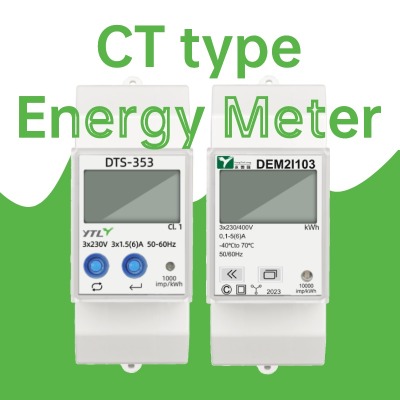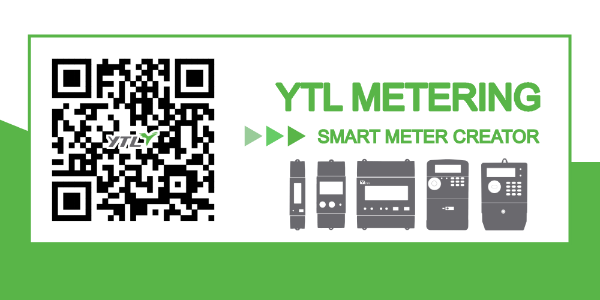The Evolution of Smart Electricity Meters: Enhancing Efficiency and Sustainability in Energy Management
Introduction:
In recent years, the energy sector has witnessed a significant transformation with the rapid adoption of Smart Electricity Meters. These innovative devices have revolutionized the way energy is consumed, monitored, and managed, offering unprecedented levels of accuracy, real-time data analysis, and enhanced control over energy usage. Smart Electricity Meter manufacturers have been at the forefront of this evolution, continuously developing and improving their products to meet the ever-growing demands of consumers and utility companies.
 Enhancing Data Accuracy and Reliability:
Enhancing Data Accuracy and Reliability:
One of the primary focuses for Smart Electricity Meter manufacturers has been to enhance the accuracy and reliability of their devices. By utilizing advanced technology and cutting-edge sensors, Smart Electricity Meters can now provide consumers with precise and real-time information about their energy usage. This not only allows consumers to gain better insight into their energy consumption patterns but also helps utility companies to optimize their grid operations and improve overall efficiency.
In order to ensure the accuracy of the data collected by Smart Electricity Meters, manufacturers have implemented rigorous testing procedures and quality control measures. Calibration processes are regularly conducted to maintain the accuracy of the meters, while remote diagnostics and monitoring enable manufacturers to identify and address any potential issues promptly. By continuously improving data accuracy and reliability, Smart Electricity Meter manufacturers are enabling more informed decision-making and promoting sustainable energy practices.
Increasing Cybersecurity Measures:
As Smart Electricity Meters become increasingly interconnected and reliant on digital networks, cybersecurity has become a top priority for manufacturers. The vast amount of sensitive data collected by Smart Electricity Meters, including personal consumption patterns and billing information, makes them an attractive target for cybercriminals. To address this growing threat, manufacturers have implemented robust cybersecurity measures to protect the integrity and confidentiality of the data collected by Smart Electricity Meters.
Encryption protocols, authentication mechanisms, and secure communication channels are just some of the cybersecurity measures that manufacturers have employed to safeguard Smart Electricity Meters against potential cyber threats. Regular security audits and vulnerability assessments are also conducted to identify and mitigate any security loopholes. By prioritizing cybersecurity, Smart Electricity Meter manufacturers are ensuring the privacy and security of consumer data, instilling trust in the reliability of their products.
 Improving Interoperability:
Improving Interoperability:
Another key area of focus for Smart Electricity Meter manufacturers is improving interoperability between different energy management systems and devices. The ability of Smart Electricity Meters to seamlessly integrate with other smart appliances, energy monitoring systems, and renewable energy sources is essential for promoting a more connected and efficient energy ecosystem. Manufacturers are working towards developing standardized communication protocols and interfaces to facilitate interoperability and data exchange between various devices.
By enhancing interoperability, Smart Electricity Meter manufacturers are enabling consumers to have greater control over their energy usage and enhance the overall efficiency of the energy grid. For example, Smart Electricity Meters that can communicate with smart thermostats and appliances can optimize energy usage based on real-time data, leading to reduced energy consumption and lower utility bills. By fostering a more interconnected energy ecosystem, Smart Electricity Meter manufacturers are paving the way for a more sustainable and efficient energy future.
Implementing Advanced Features:
To stay ahead of the curve and meet the evolving needs of consumers, Smart Electricity Meter manufacturers are continuously innovating and introducing new features and functionalities. Real-time energy monitoring, demand response capabilities, and remote access and control options are just some of the advanced features that manufacturers have integrated into their Smart Electricity Meters. These features enable consumers to track their energy usage in real-time, adjust their consumption patterns based on pricing signals, and remotely control their appliances for maximum efficiency.
In addition to these advanced features, Smart Electricity Meter manufacturers are also exploring new technologies such as artificial intelligence and machine learning to further enhance the capabilities of their devices. Predictive analytics, energy forecasting, and anomaly detection are some of the applications of AI that can help optimize energy management and improve energy efficiency. By implementing advanced features and leveraging cutting-edge technologies, Smart Electricity Meter manufacturers are empowering consumers to make smarter energy choices and contribute to a more sustainable future.
Ensuring Regulatory Compliance:
Compliance with regulatory requirements and standards is crucial for Smart Electricity Meter manufacturers to ensure that their products meet the necessary criteria and are approved for use in various markets. As energy policies and regulations continue to evolve, manufacturers must stay up-to-date with the latest requirements and guidelines to ensure that their Smart Electricity Meters comply with industry standards. By adhering to regulatory compliance, manufacturers can demonstrate the safety, reliability, and interoperability of their products, fostering trust among consumers and utility companies.
Conclusion:
The evolution of Smart Electricity Meters has significantly transformed the energy landscape, enabling consumers to monitor and manage their energy usage more efficiently and sustainably. Smart Electricity Meter manufacturers have played a pivotal role in driving this transformation, continuously developing and enhancing their products to meet the ever-growing demands of consumers and utility companies. By focusing on key areas such as data accuracy, cybersecurity, interoperability, advanced features, and regulatory compliance, Smart Electricity Meter manufacturers are shaping a more connected, efficient, and sustainable energy future. As technology continues to advance and consumer awareness grows, Smart Electricity Meter manufacturers will continue to innovate and push the boundaries of what is possible in energy management, ultimately benefiting both consumers and the environment.


Comments
Post a Comment